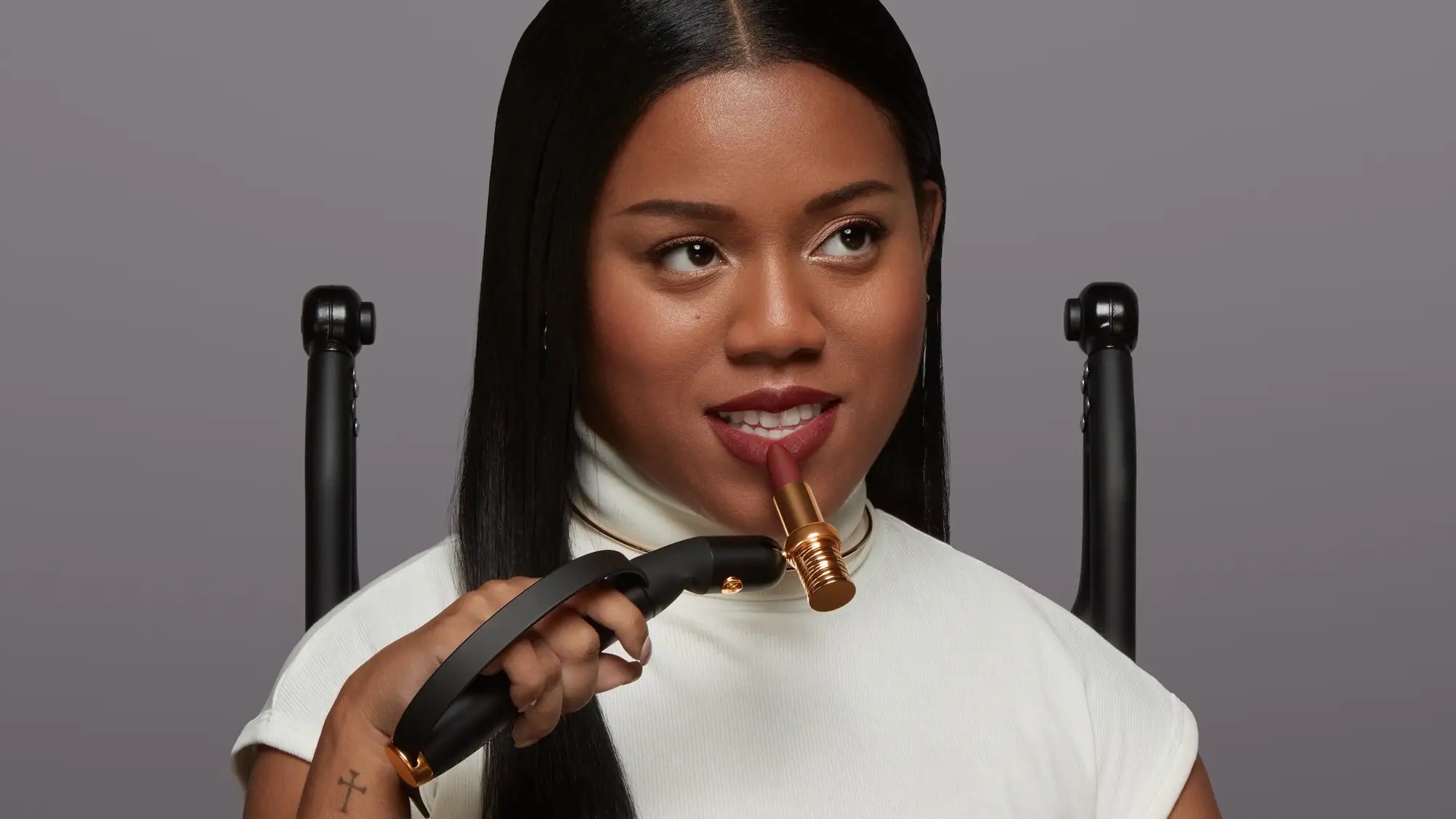
Another Step Towards Accessibility in Makeup
The beauty industry is slowly becoming more inclusive of disabled people as seen with L’Oréal’s announcement of an accessibility device.
Last week, cosmetics brand L’Oréal announced the creation of a computerized lipstick applicator, aimed at people with limited mobility in their hands and arms. The device is called Hapta and will retail for $149 to $199. It will be available by the end of 2023 in the US and next year globally.
Hapta was tested by people with Parkinson’s disease, cerebral palsy, and those who have been affected by a stroke. Haptic technology uses a vibrating motor in adaptive devices for people with disabilities. The device gets its name from this technology. Liftware, a startup that creates adaptive utensils, helped L’Oréal develop the device.
In addition to Hapta, L’Oréal has also expanded the use of QR codes on products and is making its packaging easier to open. People who are blind or have low vision can use QR codes to learn more about products.
Although the industry as a whole is moving slowly on accessibility, there are some big brands like Rare Beauty and Degree that are starting to fill in the gap. The packaging on Rare Beauty’s products are designed to be easy to grip for someone with limited mobility in their hands. Founder, Selena Gomez, has Lupus, which can cause joint pain and swelling.
Degree put out a prototype for Degree Inclusive, a deodorant container with a cap that has magnetic closure, in 2021. The company ended up not putting it into production after receiving feedback from disabled people that they needed something more customizable rather than a one-size-fits all product. Degree is now developing accessories that can be used to make their existing products more adaptive.
RELATED CONTENT
Most accessible products are coming from Indie brands like Guide Beauty, The Vamp Stamp, and Kohl Kreatives.
Both the founders of Guide Beauty, Terri Byrant, and The Vamp Stamp, Veronica Lorenz, created their brands after they lost mobility in their hands/arms. Bryant was diagnosed with Parkinson’s in 2015 and Lorenz lost feeling in her hands after a surgery for a benign spinal tumor in 2013.
The Vamp Stamp is an eyeliner stamp so that people can do a wing, even if they don’t have the dexterity to do so. The stamp has a triangle handle to help give people a better grip.
Guide Beauty’s line of products all feature packaging that allows the user to hold or open them more easily. The mascara, brow pomade, and brushes have large circular handles with a GUIDE Ring (think popsocket). The brushes are also shorter than standard, which allows for more control. The eyeliner set includes gel eyeliner in an easy-to-open and a Guide Wand with a curved precision tip and a finger rest.
In recent years, there has been an uptick in new and established makeup brands that have provided more inclusive options for groups, such as people with disabilities and people of color, that have previously been ignored.
These moves are another step toward increased accessibility for all groups.










LEAVE A COMMENT: